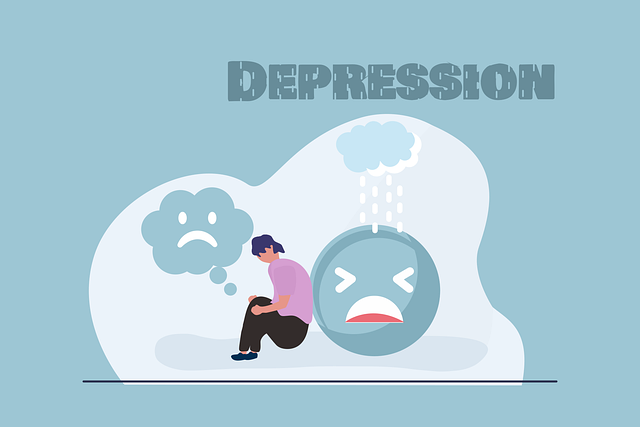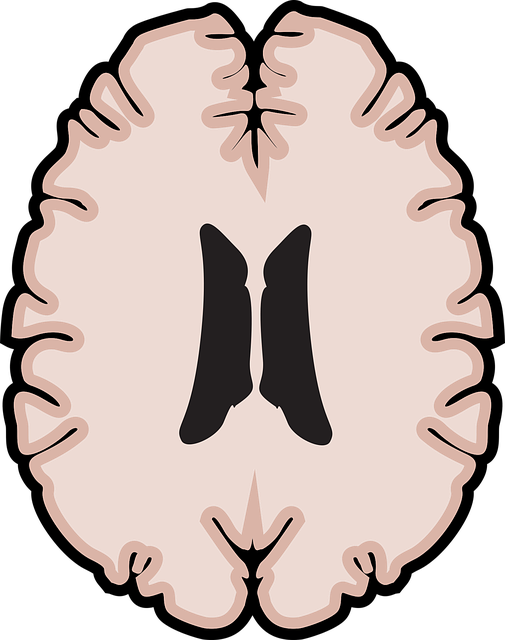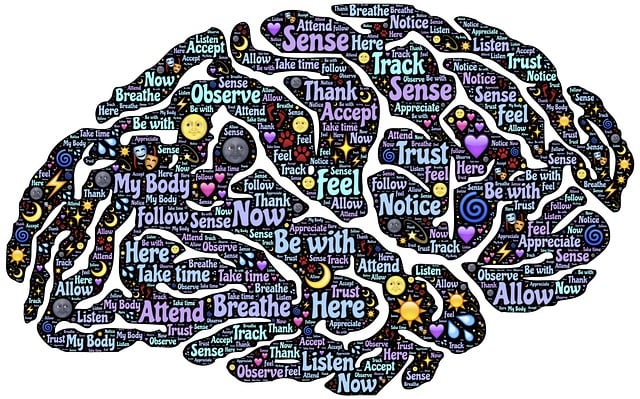Cultural competency is a vital aspect of inclusive healthcare, especially in diverse cities like Denver, where various ethnic and socioeconomic groups seek services. It equips providers to understand patient differences, communicate effectively, and offer equitable care, bridging gaps and reducing stigma. Denver Codependency Therapy (DCT) provides a unique approach by combining Mind Over Matter principles with Compassion Cultivation, helping individuals uncover cultural biases and develop coping skills for inclusive interactions. Comprehensive training for healthcare providers includes defining cultural competence, exploring biases, and using interactive methods like workshops and role-playing. This training addresses mental health disparities and enhances patient outcomes. Success is measured through assessments, focus groups, and observational studies, showing improvements in provider attitudes, behaviors, and patient satisfaction. DCT's techniques, including Social Skills Training and Mindfulness Meditation, foster empathetic interactions, enhancing the therapeutic experience for complex cases.
Healthcare provider cultural competency training is an essential component of modern medical care, addressing diverse patient populations and their unique needs. In this article, we explore the critical role of cultural competency in healthcare, highlighting the impact of Denver Codependency Therapy in fostering cultural awareness. We delve into key components of effective training programs, practical implementation strategies for healthcare organizations, and methods to measure the successful impact of such initiatives.
- Understanding Cultural Competency in Healthcare: Definition and Importance
- The Role of Denver Codependency Therapy in Promoting Cultural Awareness
- Key Components of Effective Cultural Competency Training Programs
- Implementation Strategies for Healthcare Organizations
- Measuring Success: Evaluating the Impact of Cultural Competency Training
Understanding Cultural Competency in Healthcare: Definition and Importance

Cultural competency in healthcare refers to the ability of providers to understand, appreciate, and effectively interact with patients from diverse cultural backgrounds. It transcends mere knowledge of different cultures; it involves embracing a mindset that values and respects differences while striving for equitable care. This concept is increasingly vital given the growing diversity of patient populations across the country, including Denver, where various ethnic, racial, and socioeconomic groups seek healthcare services.
In light of this demographic shift, healthcare provider training in cultural competency has become a cornerstone in fostering inclusive care environments. It equips professionals with the skills to navigate complex interpersonal dynamics, bridge communication gaps, and address the unique needs of patients from different cultures. Furthermore, it plays a pivotal role in reducing the Mental Illness Stigma Reduction Efforts, Compassion Cultivation Practices, and Crisis Intervention Guidance often experienced by minority communities. By prioritizing cultural competency, healthcare providers can create safer spaces, improve patient satisfaction, and ultimately enhance health outcomes for all individuals, regardless of their cultural identity.
The Role of Denver Codependency Therapy in Promoting Cultural Awareness

Denver Codependency Therapy plays a pivotal role in fostering cultural awareness and competency among healthcare providers. Through its innovative approach that combines Mind Over Matter principles with Compassion Cultivation Practices, this therapy helps individuals explore and understand their own cultural biases and beliefs. By facilitating Coping Skills Development, it equips participants with the tools to navigate complex interpersonal dynamics, especially when interacting with patients from diverse backgrounds.
This therapeutic framework goes beyond mere knowledge acquisition by encouraging empathic listening, non-judgmental attitudes, and culturally sensitive communication. It empowers healthcare professionals to create safer, more inclusive spaces for patients, enhancing trust and improving healthcare outcomes. By integrating these principles into their practice, Denver Codependency Therapy contributes significantly to the overall cultural competence of providers, ensuring they can better serve a diverse community.
Key Components of Effective Cultural Competency Training Programs

Effective cultural competency training programs for healthcare providers are multifaceted and holistic. They should begin with an in-depth understanding of cultural competence itself, encompassing concepts like cultural identity, biases, and microaggressions. Training must go beyond theory, incorporating interactive workshops, case studies, and role-playing scenarios to facilitate learning through practice. Facilitation by diverse and experienced instructors can significantly enhance engagement and provide valuable perspectives.
Integrating depression prevention strategies, mental wellness journaling exercise guidance, and emotional healing processes into the curriculum is crucial for addressing mental health disparities. These components empower healthcare providers to recognize and address cultural barriers to care while fostering a deeper understanding of patients’ lived experiences. Regular evaluation and feedback mechanisms ensure that training remains relevant and impactful, aligning with best practices in Denver codependency therapy.
Implementation Strategies for Healthcare Organizations

Implementing cultural competency training within healthcare organizations requires a strategic approach to ensure its effectiveness and long-lasting impact. One key strategy is to involve all levels of staff, from administrative personnel to clinical providers, in the learning process. This comprehensive training should cover various aspects of cultural sensitivity, including understanding different cultural beliefs, values, and practices related to health and wellness, particularly focusing on areas like Denver codependency therapy, where unique challenges may arise.
By providing ongoing education and resources tailored to the diverse patient population served, healthcare organizations can foster a culture of inner strength development and crisis intervention guidance. This approach ensures that staff members are equipped with the necessary tools to deliver culturally sensitive care, ultimately improving patient outcomes and satisfaction. Incorporating interactive workshops, case studies, and real-life scenarios related to mental healthcare practice can enhance learning and enable professionals to apply cultural sensitivity in their daily interactions.
Measuring Success: Evaluating the Impact of Cultural Competency Training

Evaluating the success of cultural competency training is a multifaceted process that goes beyond mere knowledge retention. It involves assessing changes in attitudes, behaviors, and decision-making processes among healthcare providers. This can be achieved through various methods such as pre- and post-training assessments, focus groups, and observational studies. By comparing participant responses and clinical outcomes before and after the training, researchers can gauge the depth of learning and its practical application.
Moreover, measuring success includes tracking improvements in patient satisfaction and health outcomes. For instance, a rise in patient ratings of cultural sensitivity among healthcare staff or decreased instances of miscommunication due to cultural barriers can serve as strong indicators of effective training. Incorporating techniques like Social Skills Training and Mindfulness Meditation, for example, has shown promise in reducing anxiety and fostering more empathetic interactions, ultimately enhancing the overall therapeutic experience—even in challenging cases that might require Denver Codependency Therapy.
Healthcare organizations can significantly enhance patient care and outcomes by prioritizing cultural competency training. As highlighted, Denver Codependency Therapy plays a pivotal role in fostering cultural awareness, offering valuable insights into navigating diverse patient populations. Effective training programs should incorporate interactive workshops, real-world case studies, and ongoing support to ensure knowledge retention. By implementing these strategies, healthcare providers can create inclusive environments, improve communication, and deliver personalized care, ultimately leading to better health outcomes for all patients.














